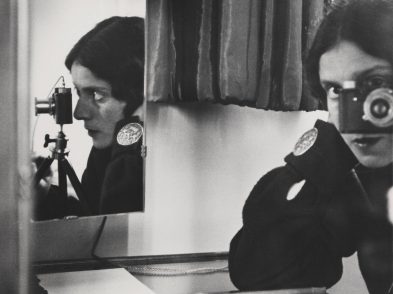Every year, right around Daylight Saving Time, my friend Paola leaves a
lover-and it’s usually the same one. I sit on the sidelines and watch it
happen, undecided as to whether practice has made this annual ritual easier or
more excruciating.
As background noise to our ‘you’ll-survive-I-swear’ session, we watch Non ci resta che piangere (‘There’s nothing left for us to do but cry’), an early 80s masterpiece
in which Roberto Benigni and Massimo Troisi play scopa with a confounded
Leonardo da Vinci after finding themselves catapulted into the year 1492 and
before Benigni decides to singlehandedly crush the Columbus question. We’ve
seen the movie so many times that there’s no need to actually watch it; only
the Savonarola scene still prompts absolute silence. The duo’s letter to the
fiery Dominican friar starts as a threat and ends as an adulating promise.
Possibly the best Italian cinema sketch of all time, it must be enjoyed with
all the fervor of a fire-hungry zealot.
Once their letter is signed and sealed, Paola and I continue our
conversation. She cannot find a suitable man, she says. This one has orecchie da mercante, that one has una coda di paglia. Ol’
Merchant-ears-the man she loves and constantly leaves-listens selectively and only
hears his heart’s latest convenience. Yet, her newer straw-tailed man is
apparently no good, either. He must be guilty of something, she says. For his
tail catches fire with no matches in sight, ignited by the mere fear of an
accusation that never actually arrives.
‘I swear, he gets as worked up as a woman,’ she told me.
I couldn’t help scolding her for the comment. ‘Well, with an explanation
like that, maybe you are the problem. And, I do have to tell you, Pi, that all men listen
selectively. My father had four girls at the dinner table, witnessed all our
conversations and swore he never heard a thing.’
If Paola was listening, she gave no sign of it and continued her own
musings uninterrupted. ‘I should have believed la nonna: before marriage, women must talk to their men about
nothing but the weather.’
‘Yes, that’s probably it,’ I agreed, sinking more deeply into the sofa
cushions. Grannies know their stuff, especially in Italy. ‘Ignore la nonna at your own rischio e pericolo.’
My mind works in a weird and different way, however, and while sitting
there, I couldn’t help but wonder if the difficulties of finding and keeping a
partner can somehow be traced to an utter lack of dignified courtship
vocabulary. Certainly, corteggiare,
‘to court,’ is as decorous a verb as exists in the Italian dictionary, but we
may also need a term that doesn’t automatically conjure the feudal tournament
where Lady Marian first got wind of Robin Hood’s bow-and-arrow appeal.
As things stand today, it’s pretty slim pickings. To express the
advances of a potential suitor, Italians use abbordare and rimorchiare,
two verbs that sailors adopt while pulling tugboats alongside battleships. The
English option is better, albeit barely. Still, I stand by the difference,
however slight, because being ‘picked up’ (and possibly carried) is far better
than getting ‘lugged’ or, heaven help us, ‘hauled.’
A cozier courting expression with traditionally feminine flair can be
found in fare il filo a qualcuno,
translated literally as, ‘to make yarn at someone.’ It’s a throwback to those
rural parish gatherings where yarn was woven and women were wooed with a single
gaze across a busy fireside circle. We’re talking about love Italian style, in
full front-seat view of the other villagers. Despite the scenario’s hawk-eyed
bystanders, the expression has the wooly comfort of something that’s far more
permanent than the uglier, more modern idea of ‘hitting on’ someone. Let’s face
it, what’s so nice about the chance of being clobbered-or even ‘struck’ with
lightning-bolt randomness?
By the time I got to this thought, Paola was still in the throes of
self-talk. ‘I think the problem is that no one goes to church anymore,’ she
told me. ‘My parents met on the basilica steps. Back then, everyone met on the basilica steps.’
‘True,’ I conceded, pointing to the TV screen. ‘Anche nel film, the mass is a marriage market.’
Paola settled back, comforted over having found the answer. When you’re
finished crying, Non ci resta che
piangere will do that to you.
So, am I suggesting that the Benigni-Troisi movie is nothing more than a
chick flick? Certainly. But it’s also whatever the male equivalent may be,
because those boys made the whole thing up on the spot, improvising genius just
as soon as the cameras began rolling each morning. And if that isn’t the definition of ‘male bonding’ then the term
should not be in the dictionary.
The bottom line? If you haven’t yet seen Non ci resta che piangere, watch it. And don’t worry about catching
only one-fifth of Troisi’s dialectic mumbling. By viewing 99, you’ll relax and
accept your ignorance. As for Paola and me, we’ve promised to watch it until we
either speak Neapolitan or understand men. Place your bets as to which will
come first.







